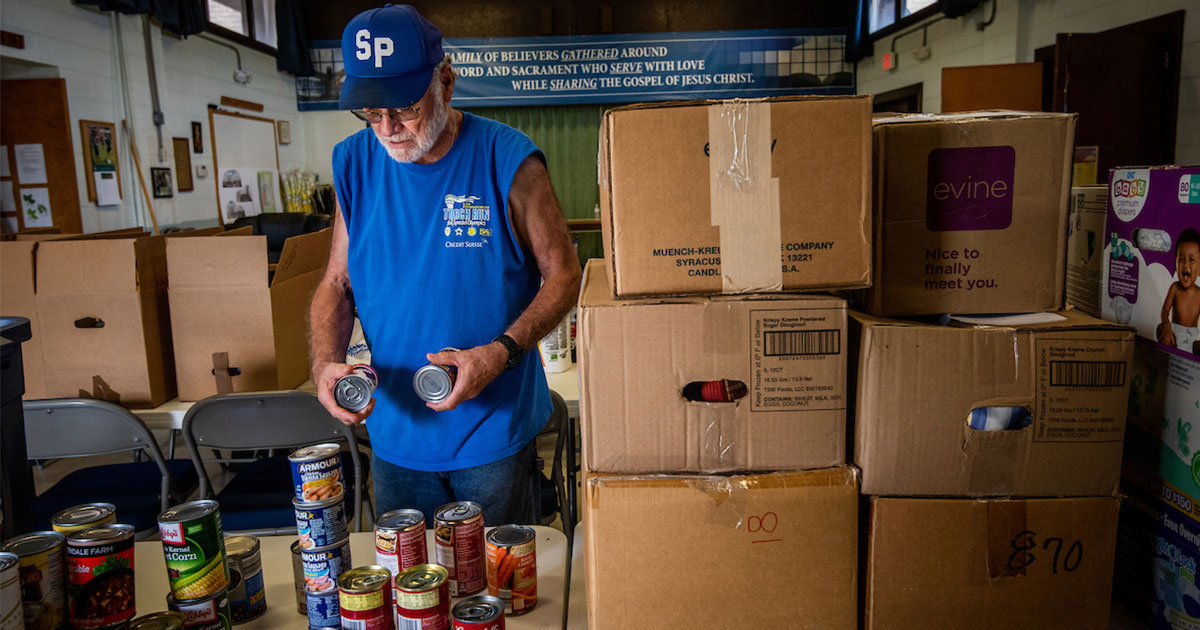
By Rev. Heath Curtis
Our nation has entered uncharted territory: Entire states have ordered people outside of “essential” industries not to work.
Millions of Americans who were living paycheck-to-paycheck are now not getting a paycheck. Recent statistics have shown that around 40% of Americans have less than $500 in cash savings.
Many churches also live offering-to-offering with little cash on hand.
If folks can’t come to church, will they still give? If folks aren’t working, how can they give?
As a pastor of two parishes in rural Illinois, I’m right here with you in the trenches. We are under a shelter-in-place order until April 7.
Here are my thoughts both as a parish pastor and as coordinator for stewardship for The Lutheran Church—Missouri Synod.
1. Get busy serving your parishioners and community!
Now is the time for the church to reflect the love of Christ like the Apostolic Church did in Acts 6.
Get volunteers organized to do grocery shopping and medication pickup for folks in the higher-risk groups. Start a food bank where parishioners can bring in items they have in excess and take what they need. Surely somebody has a spare roll of toilet paper!
It is vital for your church to get moving and be visible in serving. How will it look if the first thing your parishioners see in the mail from church is a letter begging for donations while half the church is out of work?
Prioritize serving; demonstrate the value of the church’s ministry; lead by an example of generosity.
2. Prioritize people over banks.
I suspect that a great number of churches are going to have to pick and choose which bills to pay for quite a few months.
State and federal authorities have suspended various loan payments, fees, tax deadlines, evictions, and utility shutoffs.
So, at my congregations, we are not paying mortgage or loan payments this month. The banks will understand; we’ll catch up with them, and they can bear not being paid right away much better than our people can.
We are paying our secretary and janitor. We are making sure that our Concordia Plan Services bill gets paid. We want people to have their health insurance and to be paying into their retirement accounts.
After that, pay what proportion of salaries you can.
2a. The rules might need to change in order to prioritize people.
Does your church have a bunch of money tied up or set aside for special projects?
For example, we have a “Special Fund” with a bunch of money set aside for new carpet in the sanctuary. We’re already talking about doing some internal borrowing from this fund if we need to support our workers.
Tough times might call for flexibility.
3. Make a plan. Maybe I should have put this first.
I started writing what the plan should be (in my opinion), but let me make this clear: The trustees or church council (or whatever is appropriate for your church’s constitution) need to write down whatever crisis plan you come up with.
State clearly which bills you are going to pay on time and which are going to defer. Then appoint specific people to call the bank, the gas company, etc., and talk to them about your plan to defer payments.
4. Communicate with the people.
After you have shown the church’s love in action, after you have made a plan to prioritize church-worker families, then it is time to communicate with the entire congregation.
God’s people are by nature generous. They know the love of Jesus and how “He who was rich for your sake became poor.” They love because Christ first loved them.
So if you keep them informed of the need, if you keep reminding them of the love Christ, and if you keep encouraging them to imitate the Lord’s generosity, they will come through just as soon as they can after the crisis lessens.
Here are some specific points to think about when it comes to communicating with the congregation.
- First, acknowledge the impact the crisis is having on parishioner families and offer the church’s help. Again: lead with service and ministry to needs.
- Second, share the church’s financial plan for the crisis in detail.
- Third, point to what the Word says about “those to whom much has been given.” Those who have been blessed materially have been blessed by the Lord to be a blessing, especially in time of crisis. A devotional thought on 1 Tim. 6:17-19 would be in order.
- Fourth, offer words of hope and comfort in the sacrifice of our Lord and His promise never to leave or forsake us!
Rev. Heath Curtis
Coordinator for LCMS Stewardship Ministry